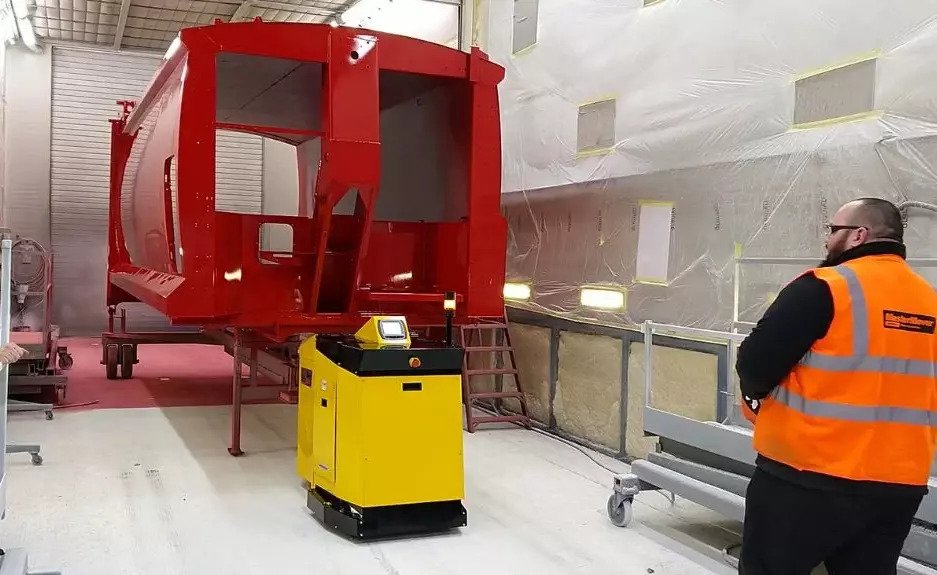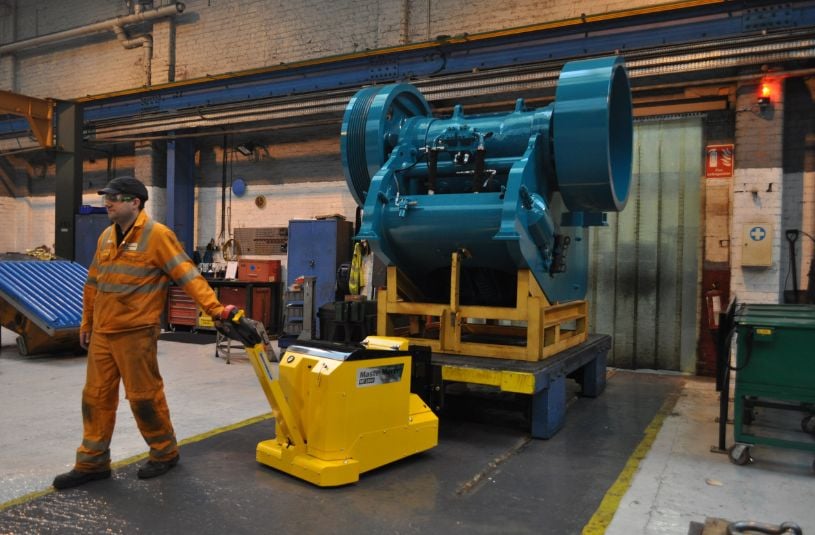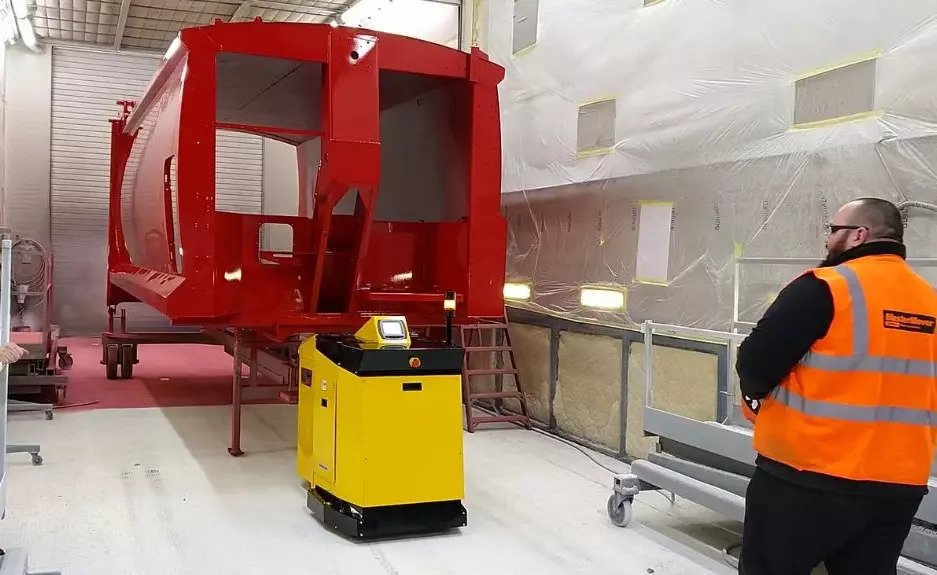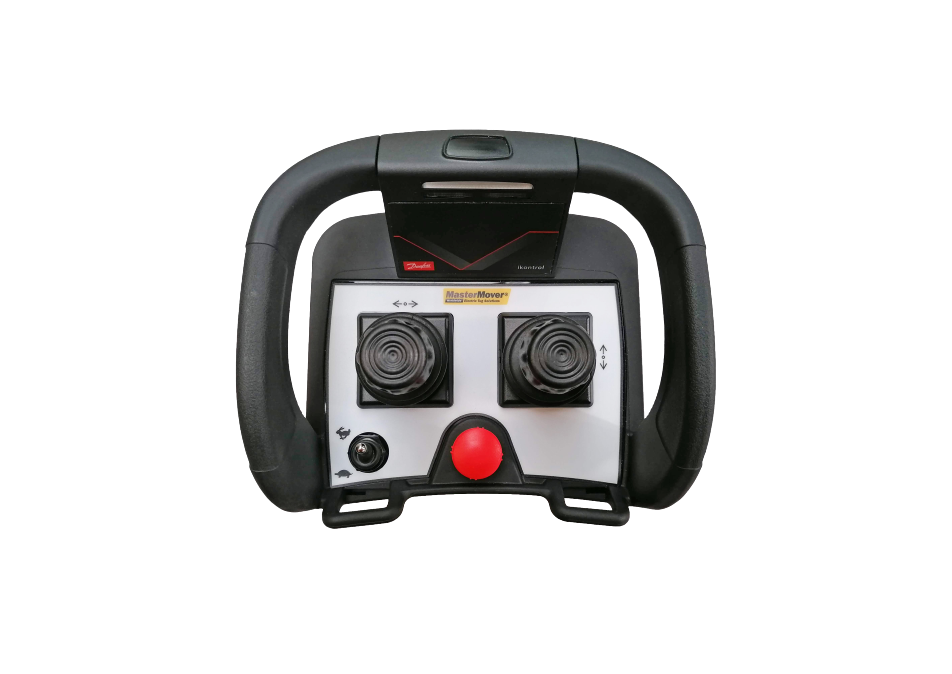Pedestrian Operated vs Remote Control
Material handling electric tugs
Thank you for submitting your consultation request.
A member of the team will be in touch shortly.

An introduction
As technology has developed, operators can now choose from a number of control options on electric tow tugs, such as a remote control or even AGV (Automated Guided Vehicle) solutions that require no operator
But, with this new level of choice, how do you work out which is right for you?
In this blog we’ll cover:

What is a pedestrian operated electric tug?
An electric tug is a battery-powered type of material handling equipment that moves heavy-wheeled loads. Pedestrian operated electric tugs are the most common and traditional design of electric tugs on the market.

What is a remote control electric tug?
With a remote control electric tug, the user uses a wireless remote control to operate the machine. This provides all the same functionalities as the headset on the machine but with the added benefit of increased mobility and a more hands-off approach.
Fundamentally, using a remote control releases the operator from standing next to the load.
What are the benefits?
The benefits of a pedestrian operated electric tow tug
A pedestrian operated design allows a single operator to easily handle loads of up to 20,000kg. The operator controls, steers and manoeuvres the electric tug directly through the headset on the machine.
The benefits of a remote control operation
Operators can position themselves in the ideal vantage point when moving a load by operating the machine with a remote control, moving with the load or taking up different viewing positions during a movement.
This simplifies operations, such as coupling to the load, manoeuvring in tight areas, and maximising visibility when moving large and cumbersome loads.
Using a remote control also transforms the operation into a completely ‘hands-off’ operation, delivering the effortless movement of loads.
Where required, with remote control operation a second control unit can be made available, featuring only an emergency stop function. This allows a second operator or ‘banksman’ to view the movement of a large load and stop that movement if they detect a risk.
Pedestrian operated vs remote control
Here are some of the features and consideration for choosing the right control method for your application
Pedestrian operated tug
- Suitable for moving wheeled loads
- Operator steers the load through the machine controls
- Intuitive operator controls deliver easy operation from the headset
- An additional member of staff may be required when manoeuvring larger loads through tight spaces
Remote control tug
- Perfectly suited to longer, awkward, or especially large loads
- Completely hands-off with the operator steering the machine through the remote control unit
- Improved visibility and positioning in tight spaces
- Easier to couple and connect to loads
- Option for MultiLink Technology, with multiple electric tugs being used in sync under the control of a single operator. Offering a scalable solution to move over 70,000kg

Is a remote control always required?
Operating electric tugs using a remote control offers an unrivalled experience when moving large, and awkward loads – especially when visibility is restricted by the load itself.
However, it isn’t required on every application. If you don’t need the additional flexibility of remote control operation, where visibility is not an issue, or your movements are infrequent, a pedestrian-operated electric tug might be the better option.
The ultimate guide to electric tugs
Electric tug essentials
Looking to understand electric tugs in a little more detail?
We’ve compiled some helpful resources to get you started, covering everything from how they work, different types of batteries, getting the right connection point and more…
When might a remote control operation be more suitable?
The addition of remote control technology to our range is designed to cater for applications where additional visibility, precision, scalability, and manoeuvrability are needed.
Each application is unique but here are some examples where a remote control operation was the right fit:
- Transportation of wing beds in a congested aerospace manufacturing facility
- Movement of 80m+ wind turbine blades out of the factory
- Mobilising 18,000kg rock-crushing chambers throughout production stages in the mining industry
We're here to help
If you’re looking to improve safety, remove the risk of injury and unlock greater operational efficiency, we’re here to help. Speak to our team to discuss your application.